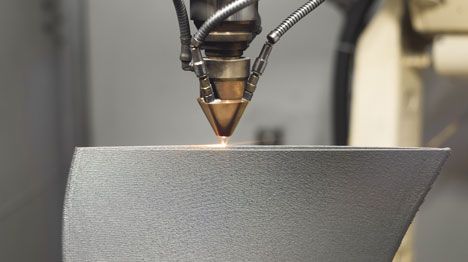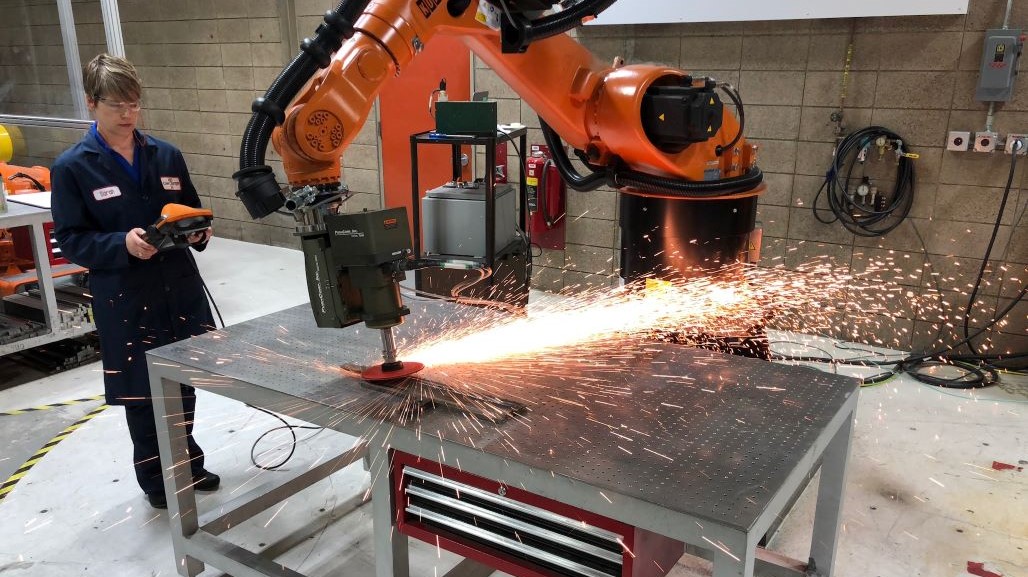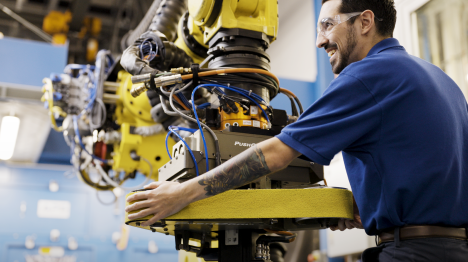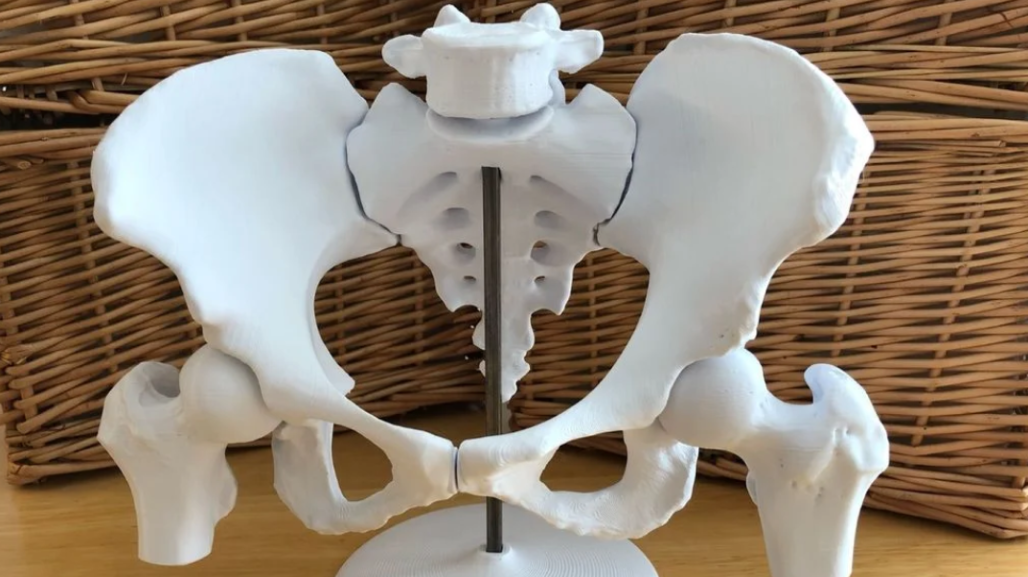Rise of the Smart Factory: Manufacturing the Future
The age of the smart factory has arrived. Adopting smart manufacturing practices may be required for businesses hoping to prosper in the Industry 4.0 world. Are you ready for it?
The age of the smart factory has arrived. Adopting smart manufacturing practices may be required for businesses hoping to prosper in the Industry 4.0 world. Are you ready for it?
The causes for today’s urgent push toward the “smart factory” are obvious in hindsight, as what was already an industrywide adoption of digital manufacturing techniques a few years ago has now gained a full head of steam. The Great Resignation that followed a global pandemic only added to the labor woes. Overloaded ports and container shortages have brought tariff-burdened supply chains to the breaking point, just as rising costs for metals, energy and transportation—practically everything needed to conduct manufacturing operations—have created a downright brutal business environment.
It seems ironic, then, to suggest that there’s never been a better time to make parts. Automation is getting simpler and less costly to implement, with more droids available than ever before. CAM systems are better, CNC machine tools are more capable, and time-saving accessories and highly productive cutting tools abound. With that comes Industry 4.0 and the Industrial Internet of Things (IIoT), featuring technologies that serve as the foundation of any smart factory and promise to make manufacturers more efficient and profitable than at any period in history.
Simply put, machine shops, sheet metal fabricators, and tool and die makers—indeed, anyone making metal or plastic products—now have compelling reasons to adopt a smart-factory strategy. The industry, it seems, has reached a tipping point, and there’s no looking back.
A smart factory is one where islands of information are replaced by a networked infrastructure that provides real-time visibility to production activities and the flexibility to tackle even single-piece orders.
Read more: Connect the Dots Between the Internet of Things and Your Shop
The global consulting firm Deloitte, which recently opened the Smart Factory @ Wichita, and the machine tool builder TRUMPF, with its Smart Factory Chicago, describe a manufacturing environment that seamlessly connects people, processes and equipment. Also leading the smart movement are the Smart Factory Institute of Tennessee, industrial equipment manufacturer Atlas Copco, information and communication technology provider Ericsson, and Michigan’s Automation Alley. All suggest that greater efficiency through the adoption of digital technologies not only is possible, but also will be required for manufacturers hoping to prosper in the Industry 4.0 world.
These are just a few of the entities that have invested significant sums of money to spread the good word about smart factories and smart manufacturing; many of them are happy to give your company a tour and help you and your team emulate what they have done.
In addition, plenty of organizations can provide advice, educational resources and consulting services to help manufacturers in their travels down the digital road, such as the National Institute of Standards and Technology (NIST), which sponsors manufacturing extension partnership (MEP) centers across the U.S.; Manufacturing Enterprise Solutions Association (MESA) International; and CESMII – The Smart Manufacturing Institute.
Armed with an understanding of smart manufacturing and some good reasons to adopt it, you’re probably thinking, now what?
For starters, any smart factory will use automation wherever possible, including robots and cobots (collaborative robots) that are often equipped with cameras and force feedback to enhance their capabilities. Such automation extends to the measurement process as well. Integrated CMMs (coordinate measuring machines) and onboard probing systems will record dimensional data, then provide feedback to CNC equipment, telling the control to adjust tool offsets when needed or stop the machine in the event of nonconformance.
Read more: Industry 4.0’s Smart Factory Is All About That Data
Then there’s the IIoT, which many consider the heart of the smart factory. Not unlike the smart thermostat in your home or the smart camera hanging outside your front door, today’s IIoT-capable equipment and machine tools contain sensors that gather data and relay it to a software system for analysis. Such information can be used to monitor machine performance or predict when maintenance should be performed, giving operators opportunities to improve manufacturing processes and proactively avoid unnecessary downtime.
The analysis software might be housed on a server in a smart factory’s IT room, but more likely it will be in an external data center across town or even in another state. Known as cloud computing, this is another big piece of the IIoT. The cloud gives manufacturers greater access to speeds and feeds, toolholder and workholder dimensions, and other application data. Externally hosted software systems generally are more secure and reliable, less expensive to maintain, easier to manage and far more scalable than those housed on-site.
A facility must open its network to cloud-based systems if it is to become smart, but doing so also increases the risk of ransomware and hacking by bad actors. Smart facilities must therefore adopt good IT housekeeping practices and invest in the hardware and software necessary to prevent external attacks.
Your state’s MEP center, for example, can assist with taking your company on the path to CMMC 2.0 and 800-171 compliance, certifications that are good for any smart factory but required for those supplying parts to the Department of Defense, NASA and other government agencies. MEPs and many of the industry’s software and equipment providers also can guide manufacturers through process improvement initiatives and IIoT rollouts.
It might be a lot to digest, but rest assured, smart factories are coming. Manufacturers that evolve their businesses to become smart will enjoy greater efficiency, productivity, part quality and more.
Smart factories that embrace Industry 4.0 and the Industrial Internet of Things have the ability to produce digital twins, or virtual representations of parts, assemblies, factory floors or other complex systems. Manufacturing facilities using toolpath simulation software are already familiar with the basics of the digital twin, but its capabilities go well beyond optimized, crash-free CNC programs.
For instance, machine tool builders can deploy digital twins of their sensor-equipped lathes and machining centers to gather information (via the cloud) about equipment usage and performance, then use the results to predict component failure or improve future models.
Similarly, a factory manager could develop a digital twin of a proposed production line to determine the most effective layout, just as automakers leverage digital twins to model vehicle crashes and gather maintenance information from the field.
In each case, the digital twin gives users unprecedented opportunities to simulate, analyze and validate real-world characteristics in a virtual world, cutting costs and saving time while improving the final product or process.




